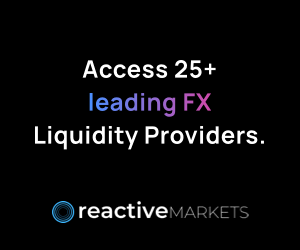Hedge Fund Investor Expectations at 10-Year High: BNP
Posted by Colin Lambert. Last updated: February 19, 2024
The bad news for hedge fund managers in the latest BNP Paribas Capital Introduction Survey of hedge fund investors is that return expectations are at their highest in more than 10 years. The good news is, as a result, investors plan to add to their hedge fund portfolio in the year ahead.
Credit strategies remain the most sought after in 2024, the withdrawal from China slows down and multi managers remain at the forefront of investors’ minds, according to the survey, which also found that the new rates regime established by central bankers is also driving return expectations.
For the report, BNP’s CapIntro team surveys its global allocator community to discuss and forecast key trends in the hedge fund industry. This year, 238 allocators that manage or advise on $1.2 trillion in hedge fund assets under management (AUM) participated in the survey in December 2023 and January 2024, representing around a third of the industry.
Observing that In 2022 the market struggled in the red with the MSCI World down almost 18%, the report says hedge funds protected capital, meaningfully outperforming the market and were flat on average for the year. Discretionary macro and CTA funds topped the charts in 2022, while equity long/short dragged on investors’ portfolios. In 2023, the market soared with the MSCI World returning 24%, whilst hedge funds returned 7.66%.
“It was far from one way traffic though,” the report notes. “With investors navigating inflationary pressures, rising rates, an unexpected banking crisis, the rise of artificial intelligence (AI), the magnificent seven dominance, hard and soft landings and increased geopolitical events. Equity long/short focused on Americas or TMT led the way for most of our responding investors as their best performing hedge fund strategy – precisely what had struggled most of the year before.”
By contrast, BNP says discretionary macro and CTAs were the worst performers in its respondents’ portfolios. Quant equity and quant multi strategy, were the best performers on average across the industry, and the bank highlights that over the full 24-month period (2022 and 2023), the average hedge fund outperformed global equity markets by 5.72%.
The report also notes that for most of the past decade, hedge funds faced headwinds to generate alpha as a result of zero interest rates and subdued volatility. As highlighted in a research report BNP conducted in 2023, hedge funds perform well in periods of high stable rates, however, during periods when rates are rising, the broader industry does not adapt fast enough and hence there is a lag in producing higher returns.
As a consequence, the recent multiple central bank rate rises did no short-term favours to hedge funds in 2023 with respondents reporting that their hedge fund portfolios returned 6.67%, still 1.5% shy of their target return.
BNP reveals that expected returns versus the risk-free rate has been keenly discussed by global allocators and observes that its CapIntro team was not surprised to learn that responding investors have pushed up their return targets by 161bps since 2022 from 7.45% to 9.06%; the highest level in a decade. Investors are anticipating improved returns from their hedge fund portfolios as they expect us to move into a high but more stabilised rate environment: the alpha era.
Investors in the survey expect to add $17 billion on a net basis in 2024, up 70% from the $10 billion net they added in 2023
2023 saw net outflows of up to $100 billion, the report says, observing that this is “perhaps unsurprising” given fund underperformance; investors taking profits from their hedge funds to rebalance their portfolios following 2022 outperformance versus other investments; and 5% risk free rates.
Nevertheless, for the year ahead, BNP says that almost half of its respondents are looking to add to hedge funds. Investors in the survey expect to add $17 billion on a net basis in 2024, up 70% from the $10 billion net they added in 2023. The much-anticipated “alpha regime” is prompting investors to inject more alternative investments that have low or no correlation to global equities and bonds into their portfolios following the breakdown of the 60/40 asset allocation model in 2022, it adds.
Multi Manager World in the Spotlight
BNP says its CapIntro team has noted two schools of thoughts emerging across the investor base around the future of the multi manager model. On one hand, some investors expect more consolidation of the hedge fund industry into multi manager platforms as well as acquisitions amongst multi manager platforms.
It adds that it follows that the war for talent will continue to be waged through increased payouts, meaning there will be fewer independent launches, more fund closures. Investors will therefore battle for access resulting in further proliferation of restrictive liquidity and higher fees.
On the other hand, the report notes that some investors believe single managers will once again find their value proposition and expect a reversal of flows away from multi managers. These allocators question whether liquidity and fees are commensurate with returns and risk, BNP states.
“Our analysis shows that the investors’ share of return amongst pass through structures dipped below 50% while managers with no pass-through fees outperformed in 2023 on a net basis reversing the trend from the previous two years,” the bank says. “It is worth noting though that the three-year average investor share for no pass through structures is only 50% which was dragged by performance in 2022. Other concerns shared by these investors include position crowding and the potential for a systemic deleveraging event.”




